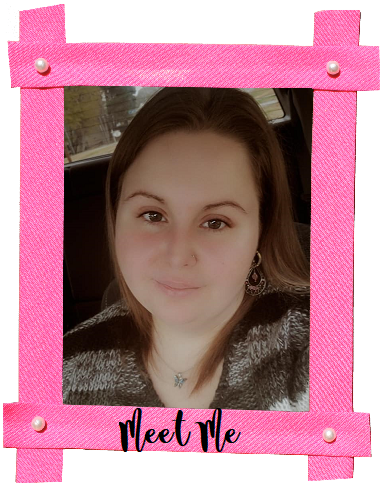After seeing a cardiologist, I've recently been diagnosed with dysautonomia, unspecified. The long and short of it, there is no cure for it. There isn't really a doctor who will touch it with a ten foot pole either. Did my cardiologist look at me like he was telling me I had terminal cancer? Yes. Did I completely lose my shit and break down in front of him to the point of being inconsolable? Most definitely. He can treat the high blood pressure and the tachycardia with medication that is being caused by the dysautonomia but beyond that, he can't do much else. He recommended that I salt my food in moderation, even with blood pressure issues and to try compression leggings. He said hydration and rest are important aspects.
I'm really at a complete loss for words to be perfectly honest. I'm devastated. There are so many things that can cause dysautonomia, so there is no definitive way to figure out what exactly is causing it which is a huge problem. I'm suffering from a lot of mental health issues because of it. I've altered my life a lot lately in attempt to keep my symptoms at bay such as quitting vaping, switching to decaf or caffeine free products, eating healthy and drinking approximately 120 oz of water a day. I also take vitamins for deficiencies. All of the testing I've done has come back reasonably normal. Bloodwork testing hormone levels, thyroid, complete blood count, comprehensive metabolic panel, auto immune disease, lyme disease, cortisol, norepinephrine, epinephrine, dopamine, tryptase, etc. I've also had a cardiac scoring test, tilt-table test, ECG, EKG and echocardiogram as well as wore a 30-day heart monitor - all of which came back normal. So, lets talk about it...
The Good: It can't literally hurt you. Now I say this loosely because if you don't manage certain symptoms such as the blood pressure and tachycardia that goes along with it then over-time, yes, it can hurt you but other than that, it can't kill you. Fortunately, the blood pressure and tachycardia symptoms of dysautonomia can be treated with medication, staying sufficiently hydrated, managing stress and consuming a healthy diet.
The Bad: There is no cure for it. It is next to impossible to find a doctor that is willing to treat dysautonomia. It's very difficult to figure out what exactly is causing it as there are countless things that can cause it. It's not a highly researched topic as it's only becoming more and more common after COVID. Having the hypertensive type of dysautonomia (not associated with POTS) is even less common which is the type that I have.
The Ugly: It sucks! You never know when an attack is going to happen and even though you may have discovered some of your triggers, sometimes it still has no rhyme or reason why you are in a flare. The flares can range in severity and length of time. They can last only 15 minutes and not be that bad or last up days in a row and be completely debilitating. You may even feel so horrible that you feel like you need to go to the E.R but the reality is, the E.R can't do a single thing for you. How do I know? I've been there for this. They chalk it up as anxiety, may or may not give you a limited script for anti-anxiety meds, tell you to follow-up with your primary care doctor and send you on your way.
I've come to learn that the E.R can't help you unless you are actively bleeding, having a heart attack or having a stroke. These attacks can be extremely traumatizing. The most common symptoms I have during a flare is I get extremely cold (especially my hands), brain fog, rapid heart-rate, tingling throughout my entire body, flight or fight panic - basically feeling like I'm going to die. In more severe attacks, including all the common symptoms, my whole body has tremors. In the worst attack I've had so far, can't catch my breath and talking like I had a stroke. The night of my worst attack, I dialed 911 on myself which was before I knew what dysautonomia was.
Triggers (for me anyway): HEAT, excessive sugar/carb consumption, dehydration, moving too quickly, too much stress, excessive lights and sound, being over-stimulated in general, standing too long, etc...
Tips that help me: Stay hydrated. Quit vaping (nicotine in general). Limit caffeine and alcohol to a bare-minimum. Listen to your body and don't force yourself to do something you can't do - if your body is telling you to lay down and get rest, DO IT! Take breaks if needed. I take breaks whether I'm out running errands, doing household chores and even if I'm out and about enjoying myself. Be kind to yourself and limit your exposure to stress. There is going to be stress in your life no matter what, but limiting as much as possible is imperative in reducing flare-ups. If you can't get your own stuff done, don't agree to help others. You can't help others if you're on fire yourself! You have a condition that is chronic, complex and involuntary - you shouldn't feel guilty for that! Lastly, what helps me during an attack is getting a cold water bottle and holding it to my chest. I do deep breathing exercises and either sit or lay down until the feeling passes. I try to distract my mind by either watching T.V or scrolling through social media of some sort. I also tell myself, "This will pass as it always does. It can't hurt me and I'm going to be okay". I'll repeat it as many times as I deem necessary.








Post a Comment